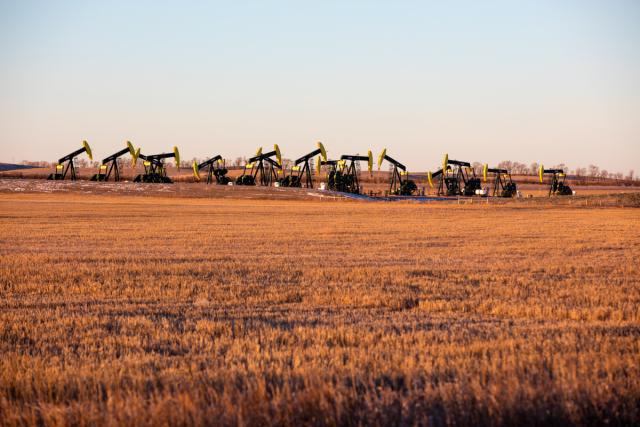
Hess Corp. was the only U.S. oil and gas company recognized by the Transition Pathway Initiative in their September 2020 report based on the company’s efforts to support the transition to a low carbon economy. (Source: Hess Corp.)
Learn more about Hart Energy Conferences
Get our latest conference schedules, updates and insights straight to your inbox.
Despite a growing need for renewable energy to fight climate change, oil and gas will continue to be fundamental for “world economic growth and human prosperity” for decades to come, according to John Hess, CEO of Hess Corp.
“The energy transition will take time, cost a lot of money and major technological breakthroughs will be required,” Hess told analysts during the Barclays CEO Energy-Power Conference on Sept. 9.
Referring to the International Energy Agency’s (IEA) 2020 world energy outlook that provided an aggressive sustainable development scenario, Hess noted oil and gas would still make 40% of the energy mix in 2040 even if all the pledges of the Paris Agreement were met. Further, oil and gas would still be 29% of the energy mix in 2040, according to the IEA’s newest net-zero scenario.
“The key for the company and for the industry is to have a low cost of supply by investing in high return low cost opportunities,” he said, adding that his company has been investing in high-return, low-cost assets that are balanced between short and long cycles.

Based in New York, Hess is a leading global independent energy company engaged in the exploration and production of crude oil and natural gas with an industry-leading position in the Bakken shale play in North Dakota. The company is also one of the largest producers in the deepwater Gulf of Mexico (GoM) and is engaged in exploration and development activities offshore Guyana, participating in one of the industry’s largest oil discoveries in the past decade.
The Bakken, deepwater GoM and Malaysia are cash engines for the oil producer, Hess said adding that Guyana is well on its way to become a “significant cash engine driven by the startups of multiple low-cost development phases over the next several years.”
Guyana is a “truly transformative investment opportunity for Hess,” he continued.
The company is focused on preserving the long term value of its assets, adding that the recent Pinktail discovery in Exxon Mobil Corp.-operated Stabroek Block offshore Guyana adds to previous recoverable resource estimate of approximately 9 billion oil equivalent barrels.
“As of today, we have made 20 significant discoveries offshore Guyana since 2015…We continue to see multi-billion barrels of future exploration potential remaining,” he said.
RELATED:
Exxon Mobil Expands Offshore Guyana Resource with New Pinktail Oil Find
Hess also outlined the company’s continued commitment to sustainability including investment in new technologies for carbon capture and emission reduction.
“We recognize climate change as one of the greatest scientific challenges of the 21st century,” he said. “We also support the aim of the Paris agreement and the ambition to reduce global emissions to net zero by 2050.”
“For 2021,” he continued, “we have added continued Bakken flaring reduction as one of the performance metrics used in the annual incentive plan.”
In July, Hess published the company’s 24th annual sustainability report with new emission reduction targets.
The report recognized the oil producer as the No. 1 energy company on the 100 Best Corporate Citizens list for its outstanding ESG transparency and performance this past year. Additionally, the report noted Hess as the only U.S. oil and gas company awarded a Level 4 star rating by the Transition Pathway Initiative in their September 2020 report based on the company’s efforts to support the transition to a low carbon economy.
Recommended Reading
BKV CEO Chris Kalnin says ‘Forgotten’ Barnett Ripe for Refracs
2024-04-02 - The Barnett Shale is “ripe for fracs” and offers opportunities to boost natural gas production to historic levels, BKV Corp. CEO and Founder Chris Kalnin said at the DUG GAS+ Conference and Expo.

